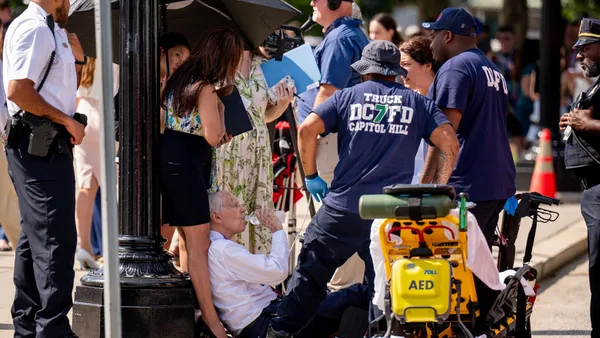Dive Brief:
- In a unanimous vote Tuesday, the Oakland, CA City Council passed a ban on facial recognition technology by city departments, including the police.
- The ban came in response to concerns that it would unfairly target African Americans and minorities in the city, and could be subject to government abuse. In a June memo, Council President Rebecca Kaplan wrote that the technology "runs the risk of making Oakland residents less safe as the misidentification of individuals could lead to the misuse of force, false incarceration, and minority-based persecution."
- Oakland is the third U.S. city to pass such a ban, following San Francisco and Somerville, MA .
Dive Insight:
As the use of facial recognition technology by governments, police departments and private companies has accelerated, so have concerns over how the technology might impact minority populations or infringe on people's rights. A January 2018 study from the Massachusetts Institute of Technology Media Lab found that facial recognition software struggled to identify women with darker skin, and tests by the American Civil Liberties Union (ACLU) likewise found false matches with minorities.
That's led some liberal cities to pump the brakes on the technology through bans on government use (although private use would still be permitted). The Massachusetts state legislature has also seen a ban introduced, and there have been bills brought up in the U.S. Congress that would regulate the technology.
On Tuesday, the U.S. House of Representatives approved an amendment to the Intelligence Authorization Act that would require the Director of National Intelligence to report on the government's use of the technology and its potential impact on First Amendment rights. The public safety committee on the Berkeley, CA city council also met Wednesday to discuss a potential facial recognition ban in that city.
Oakland Chief of Police Anne Kirkpatrick says the department doesn't currently have any "facial recognition" technology and does not plan to acquire it, according to reporting from Vice. Although, she said in a memo to the city that such technology could "provide important benefits to law enforcement."
Some feel that the trend towards city-wide bans could actually hinder law enforcement. In an interview with Smart Cities Dive, Information Technology & Innovation Foundation Vice President Daniel Castro said the technology can be useful in identifying suspects or witnesses to crimes, or as security in government buildings or public spaces. Banning the technology, he said, could put cities behind as it becomes more commonplace, and wouldn't allow them to work on policies to make its use more equitable.
"For a city like Oakland, I would say do a pilot, ensure that the technology is being used correctly and track performance," Castro said. "You could have a bigger impact by being an early adopter and setting standards."










